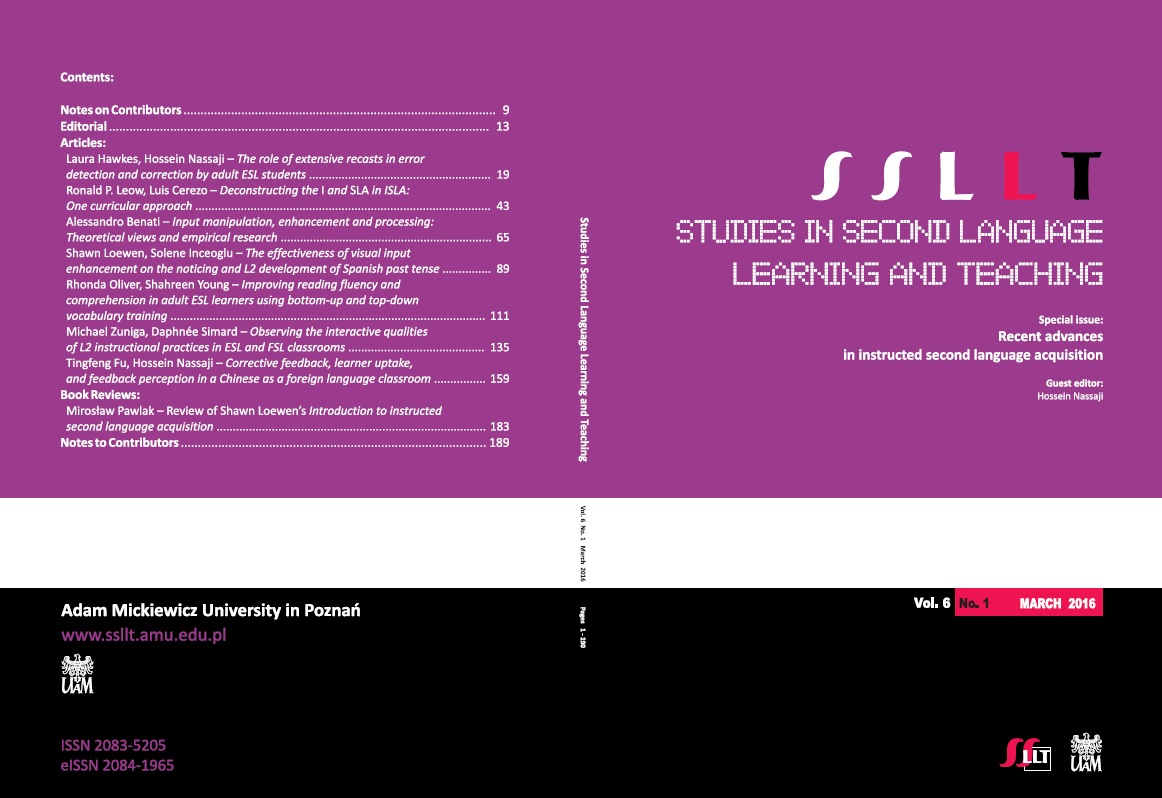The role of extensive recasts in error detection and correction by adult ESL students
The role of extensive recasts in error detection and correction by adult ESL students
Author(s): Laura Hawkes, Hossein NassajiSubject(s): Language and Literature Studies
Published by: Wojskowe Biuro Historyczne im. gen. broni Kazimierza Sosnkowskiego
Keywords: error detection; error correction; recast; corrective feedback; grammaticality
Summary/Abstract: Most of the laboratory studies on recasts have examined the role of intensive recasts provided repeatedly on the same target structure. This is different from the original definition of recasts as the reformulation of learner errors as they occur naturally and spontaneously in the course of communicative interaction. Using a within-group research design and a new testing methodology (video-based stimulated correction posttest), this laboratory study examined whether extensive and spontaneous recasts provided during smallgroup work were beneficial to adult L2 learners. Participants were 26 ESL learners, who were divided into seven small groups (3-5 students per group), and each group participated in an oral activity with a teacher. During the activity, the students received incidental and extensive recasts to half of their errors; the other half of their errors received no feedback. Students’ ability to detect and correct their errors in the three types of episodes was assessed using two types of tests: a stimulated correction test (a video-based computer test) and a written test. Students’ reaction time on the error detection portion of the stimulated correction task was also measured. The results showed that students were able to detect more errors in error+recast (error followed by the provision of a recast) episodes than in error-recast (error and no recast provided) episodes (though this difference did not reach statistical significance). They were also able to successfully and partially successfully correct more errors in error+recast episodes than in error-recast episodes, and this difference was statistically significant on the written test. The reaction time results also point towards a benefit from recasts, as students were able to complete the task(slightly) more quickly for error+recast episodes than for error-recast episodes.
Journal: Studies in Second Language Learning and Teaching
- Issue Year: VI/2016
- Issue No: 1
- Page Range: 19-41
- Page Count: 23
- Language: English

